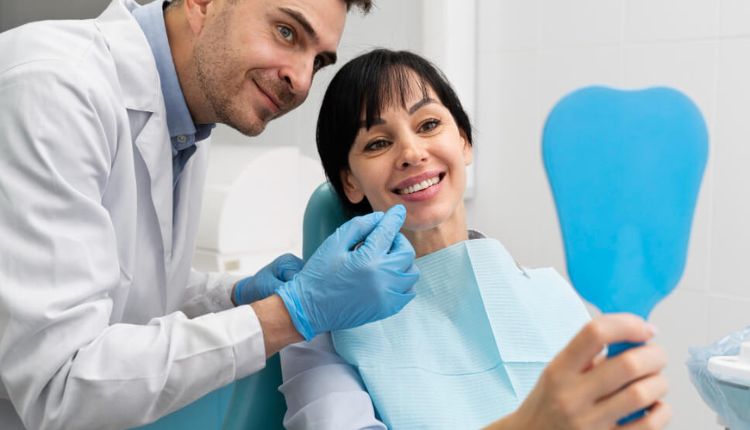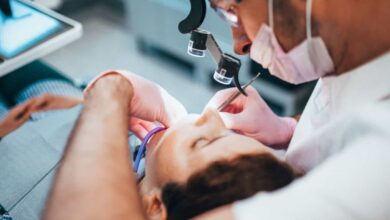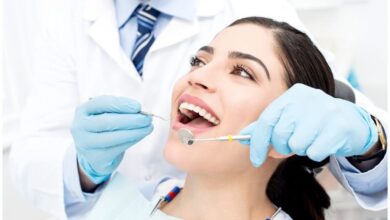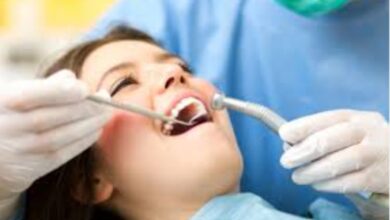Understanding Dental Cleaning in Aurora

- Specialized Dental Cleaning Services Available in Aurora
- The Connection Between Dental Cleanings and Overall Health
- Understanding the Costs of Dental Cleanings in Aurora
- Post-Cleaning Care Tips for a Healthy Smile
- Choosing the Right Dentist for Dental Cleanings in Aurora
- Common Concerns About Dental Cleanings
What Is a Dental Cleaning?
So, what exactly is dental cleaning? It’s more than just a quick brush and rinse. A professional dental cleaning, often performed by a dental hygienist, involves removing plaque and tartar buildup from your teeth. This stuff can lead to cavities and gum disease if left unchecked. They use special tools to get into all the nooks and crannies you might miss with your regular toothbrush. Think of it as a super-powered cleaning for your mouth, and a key part of maintaining good oral hygiene.
Why Are Dental Cleanings Important?
Why bother with dental cleanings? Well, they’re pretty important for a few reasons:
- Preventing Gum Disease: Regular cleanings help keep gum disease at bay. Gum disease can lead to tooth loss and other health problems.
- Detecting Problems Early: Your dentist can spot potential issues like cavities or oral cancer during a cleaning.
- Removing Stains: Cleanings can remove surface stains, giving you a brighter smile.
Skipping dental cleanings can lead to bigger problems down the road. Think of it this way: a little time and money spent now can save you from more extensive (and expensive) treatments later.
How Often Should You Get a Cleaning?
Generally, you should aim for a dental cleaning every six months. However, this can vary depending on your individual needs. If you have a history of gum disease or other oral health issues, your dentist in aurora il might recommend more frequent cleanings. Similarly, if you’re diligent with your oral hygiene at home and have no major issues, you might be able to stretch it out a bit. Talk to your dentist or orthodontist aurora il to figure out what’s best for you. They can assess your specific situation and recommend a schedule that works for you. Remember, these dental cleanings aurora are a key part of preventative care, and can help you avoid needing more extensive procedures like dental crowns aurora in the future.
Specialized Dental Cleaning Services Available in Aurora
Beyond the standard cleaning, Aurora dental offices provide specialized services tailored to specific needs. These go beyond just removing surface stains and address deeper oral health concerns. If you’re looking for an emergency dentist aurora il, it’s good to know what options are available.
Deep Cleaning for Gum Health
Deep cleaning, also known as scaling and root planing, targets gum disease. It’s more intense than a regular cleaning, reaching below the gum line to remove plaque and tartar. This is important because:
- It stops gum disease from getting worse.
- It can reduce gum inflammation and bleeding.
- It helps prevent tooth loss in the long run.
Polishing for a Brighter Smile
Polishing is often the final step in a cleaning. It smooths the tooth surface, making it harder for plaque to stick. Plus, it gives your teeth a nice shine. Benefits include:
- Removing surface stains from coffee, tea, or smoking.
- Making teeth feel smoother and cleaner.
- Improving the overall appearance of your smile.
Preventive Care Options
Preventive care goes beyond just cleaning. It includes treatments and advice to keep your teeth healthy. Some common options are:
- Fluoride treatments to strengthen enamel.
- Sealants to protect molars from decay.
- Oral hygiene instruction to improve your brushing and flossing techniques.
Regular preventive care can save you money and trouble in the long run. By addressing potential problems early, you can avoid more costly and invasive treatments later on.
The Connection Between Dental Cleanings and Overall Health
It’s easy to think of dental cleanings as just about your teeth, but they’re so much more. Regular dental cleanings in Aurora play a surprisingly big role in your overall health. It’s all connected, and neglecting your oral hygiene can have ripple effects throughout your body. Let’s explore how keeping your smile clean can benefit your heart, immune system, and more.
How Oral Health Impacts Heart Health
Did you know that what’s happening in your mouth can affect your heart? It’s true! Bacteria from gum disease can actually enter your bloodstream and cause inflammation in your blood vessels. This inflammation has been linked to an increased risk of heart attack and stroke. Regular dental cleanings help keep those harmful bacteria in check, protecting your heart in the process. It’s like a two-for-one deal: a healthy smile and a healthier heart.
The Link Between Gum Disease and Systemic Issues
Gum disease isn’t just about sore gums and bad breath. It can actually be linked to a number of other health problems, including:
- Diabetes: Gum disease can make it harder to control blood sugar levels, and vice versa.
- Respiratory infections: Bacteria from your mouth can travel to your lungs and cause infections.
- Pregnancy complications: Gum disease has been linked to premature birth and low birth weight.
Regular dental cleanings can help prevent and manage gum disease, reducing your risk of these and other systemic issues. It’s all about keeping your body in balance.
Benefits of Regular Cleanings for Overall Well-Being
Regular dental cleanings offer a range of benefits that extend far beyond just a brighter smile. Here are a few key advantages:
- Early Detection: Cleanings allow your dentist to spot early signs of oral cancer, infections, or other health issues.
- Preventive Care: They help prevent cavities, gum disease, and other dental problems before they start.
- Improved Overall Health: By keeping your mouth healthy, you’re also reducing your risk of heart disease, diabetes, and other systemic conditions.
Taking care of your teeth is an investment in your overall health. Regular dental cleanings are a simple yet effective way to protect your well-being and enjoy a healthier, happier life.
Understanding the Costs of Dental Cleanings in Aurora
Let’s talk about something important: the financial side of keeping your smile healthy. Dental cleanings are a key part of that, but the cost of dental cleanings can be a concern. Here’s a breakdown to help you understand what to expect in Aurora.
What Influences the Cost of a Cleaning?
Several things can affect how much you’ll pay for a dental cleaning. It’s not always a flat fee. Here’s what to keep in mind:
- The condition of your teeth: If you have a lot of plaque and tartar buildup, it’ll take longer to clean, which can increase the cost.
- Additional services: Sometimes, you might need X-rays or a fluoride treatment, which will add to the total bill.
- The dentist’s fees: Different dentists have different rates, so it’s worth comparing prices.
Basically, the healthier your teeth are, the quicker and cheaper your cleaning will be. Regular brushing and flossing can really pay off in the long run!
Insurance Coverage for Dental Cleanings
Good news! Most dental insurance plans cover routine cleanings. But, it’s important to know the details of your plan. Here’s what to check:
- How many cleanings are covered per year? Most plans cover two, but it’s always good to confirm.
- What percentage of the cost is covered? Some plans cover 100%, while others cover a smaller percentage.
- Are there any co-pays or deductibles? You might have to pay a small fee or meet a deductible before your insurance kicks in.
If you’re not sure about your coverage, call your insurance company or ask your dentist’s office to help you understand your benefits.
Affordable Options for Dental Care
What if you don’t have insurance? Don’t worry, there are still ways to make dental care affordable. Here are a few options to explore:
- Payment plans: Many dental offices offer payment plans, so you can spread the cost over time.
- Dental schools: Dental schools often offer lower-cost cleanings performed by students under the supervision of experienced dentists.
- Community dental clinics: These clinics often offer reduced fees based on your income.
Finding the right option might take a little research, but it’s worth it to keep your smile healthy without breaking the bank.
Post-Cleaning Care Tips for a Healthy Smile
So, you just had your teeth cleaned! Awesome. Now what? It’s super important to keep up the good work after you leave the dentist’s office. A dental cleaning is a great start, but it’s up to you to maintain that fresh, clean feeling and protect your pearly whites.
Foods and Drinks to Avoid After a Cleaning
Okay, listen up, because this is where a lot of people mess up. Right after a cleaning, your teeth are extra vulnerable to stains. Think of it like freshly painted walls – you wouldn’t throw mud at them, right? Same idea here.
- Coffee and Tea: I know, I know, this is a tough one for a lot of us. But trust me, hold off for at least 24 hours.
- Red Wine: Sorry wine lovers, this is a big no-no right after a cleaning. It’s basically stain city.
- Dark Sodas: These are bad news all around, but especially right after a cleaning. The sugar and acidity are not your friends.
- Berries: As much as I love a good smoothie, berries can stain your teeth. Maybe skip the blueberry muffin too.
Best Practices for Oral Hygiene
Alright, let’s talk about the daily grind – brushing and flossing. This is where you really make or break your oral health. It’s not rocket science, but consistency is key.
- Brush Twice a Day: Morning and night, no excuses. Use a soft-bristled toothbrush and fluoride toothpaste. Don’t brush too hard, or you’ll irritate your gums.
- Floss Daily: Yes, every single day. Get in between those teeth and get rid of the plaque and food particles. It’s annoying, but so worth it.
- Mouthwash: Swish with an antiseptic mouthwash to kill bacteria and freshen your breath. It’s a nice little boost to your oral hygiene routine.
- Tongue Scraper: Don’t forget your tongue! It can harbor a lot of bacteria. A tongue scraper is a cheap and easy way to keep your mouth clean.
Signs You Should See Your Dentist Again
Sometimes, things aren’t perfect, even with regular cleanings and good oral hygiene. If you notice any of these signs, it’s time to call your dentist.
- Bleeding Gums: If your gums bleed when you brush or floss, that’s a sign of inflammation or gum disease. Don’t ignore it!
- Persistent Bad Breath: Bad breath that doesn’t go away with brushing and flossing could be a sign of an underlying problem.
- Tooth Pain or Sensitivity: Any pain or sensitivity in your teeth should be checked out by a dentist. It could be a sign of a cavity or other issue.
- Loose Teeth: If your teeth feel loose, that’s a serious problem that needs immediate attention.
Listen, taking care of your teeth after a cleaning isn’t hard, but it does take effort. Think of it as an investment in your health and your smile. A few simple steps can make a huge difference in the long run. So brush, floss, and keep smiling!
Choosing the Right Dentist for Dental Cleanings in Aurora
Finding the right dentist for your dental cleanings in Aurora is a big deal. It’s not just about getting your teeth cleaned; it’s about finding someone you trust and feel comfortable with. You want a dentist who not only does a great job but also makes you feel at ease during your visits. Let’s look at some important things to think about when you’re making your choice.
Key Factors to Consider When Selecting a Dentist
Okay, so where do you even start? Here are a few things I always consider:
- Qualifications and Experience: Make sure they’re actually qualified! Check their credentials and see how long they’ve been practicing. Experience counts for a lot, especially if you have specific concerns.
- Range of Services: Do they just do cleanings, or do they offer other stuff like cosmetic dentistry or orthodontics? It’s good to know they can handle more than just the basics if you ever need it.
- Technology and Techniques: Is the office using modern equipment? Are they up-to-date on the latest dental techniques? You want someone who’s keeping up with the times.
- Comfort and Communication: This is huge. Do they listen to your concerns? Do they explain things clearly? You want a dentist who takes the time to make you feel comfortable and informed.
The Value of Patient Reviews and Testimonials
Don’t just take the dentist’s word for it – see what other patients are saying! Patient reviews and testimonials can give you a real sense of what to expect. Look for patterns. Are people consistently praising their gentle touch? Are there complaints about long wait times? This kind of feedback can be super helpful.
Why Location and Office Hours Matter
Let’s be real, convenience is key. If the dentist’s office is way out of your way or their hours don’t work with your schedule, you’re less likely to go. Think about:
- Location: Is it close to your home or work? Easy to get to?
- Office Hours: Do they have evening or weekend appointments? Can they accommodate your schedule?
- Emergency Care: What happens if you have a dental emergency? Do they offer after-hours care?
Choosing a dentist is a personal thing. Take your time, do your research, and don’t be afraid to ask questions. The right dentist can make a big difference in your oral health and your overall well-being. It’s worth the effort to find someone you trust and feel good about seeing regularly.
Common Concerns About Dental Cleanings
It’s normal to have questions or even some anxiety about dental cleanings. Let’s address some common concerns about dental cleanings to help you feel more comfortable and informed before your next appointment.
Are Dental Cleanings Painful?
Most people find dental cleanings to be relatively painless, but experiences can vary. If you have sensitive teeth or gums, you might feel some discomfort. Here’s what to keep in mind:
- Sensitivity: Tell your hygienist if you experience sensitivity. They can adjust their techniques or use desensitizing agents.
- Gum Inflammation: If you have gum inflammation, the cleaning might be a bit more uncomfortable in those areas.
- Deep Cleaning: A deep cleaning (scaling and root planing) might require local anesthesia to minimize discomfort.
Don’t hesitate to communicate with your dental team about any pain or discomfort you’re feeling. They want to make the experience as pleasant as possible.
What to Expect During Your Appointment
Knowing what happens during a cleaning can ease anxiety. Here’s a general overview:
- Examination: The hygienist or dentist will examine your teeth and gums.
- Scaling: Plaque and tartar are removed using special instruments.
- Polishing: Your teeth are polished to remove surface stains.
- Fluoride Treatment: A fluoride treatment might be applied to strengthen your teeth.
How Long Does a Cleaning Typically Take?
The length of a dental cleaning can vary depending on your individual needs. However, here are some general guidelines:
- Routine Cleaning: A typical cleaning usually takes between 30 minutes to an hour.
- Deep Cleaning: Deep cleanings might require multiple appointments, each lasting 45 minutes to an hour.
- Factors Affecting Time: The amount of plaque and tartar buildup, as well as any gum issues, can affect the duration of the cleaning.




